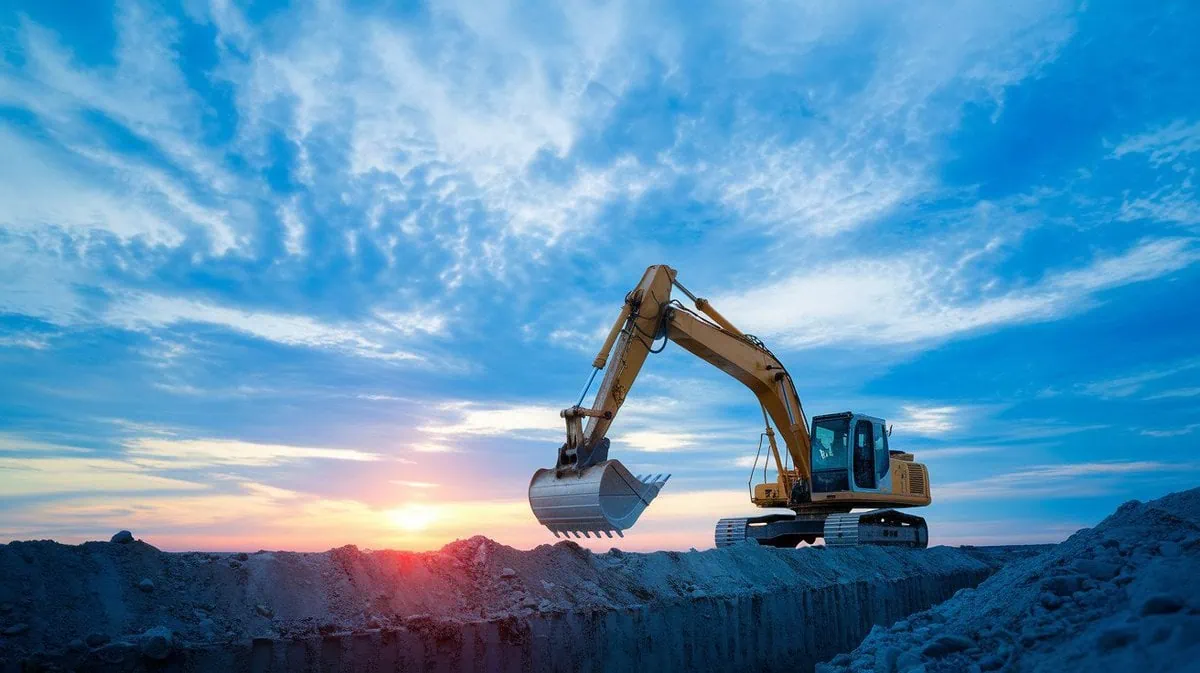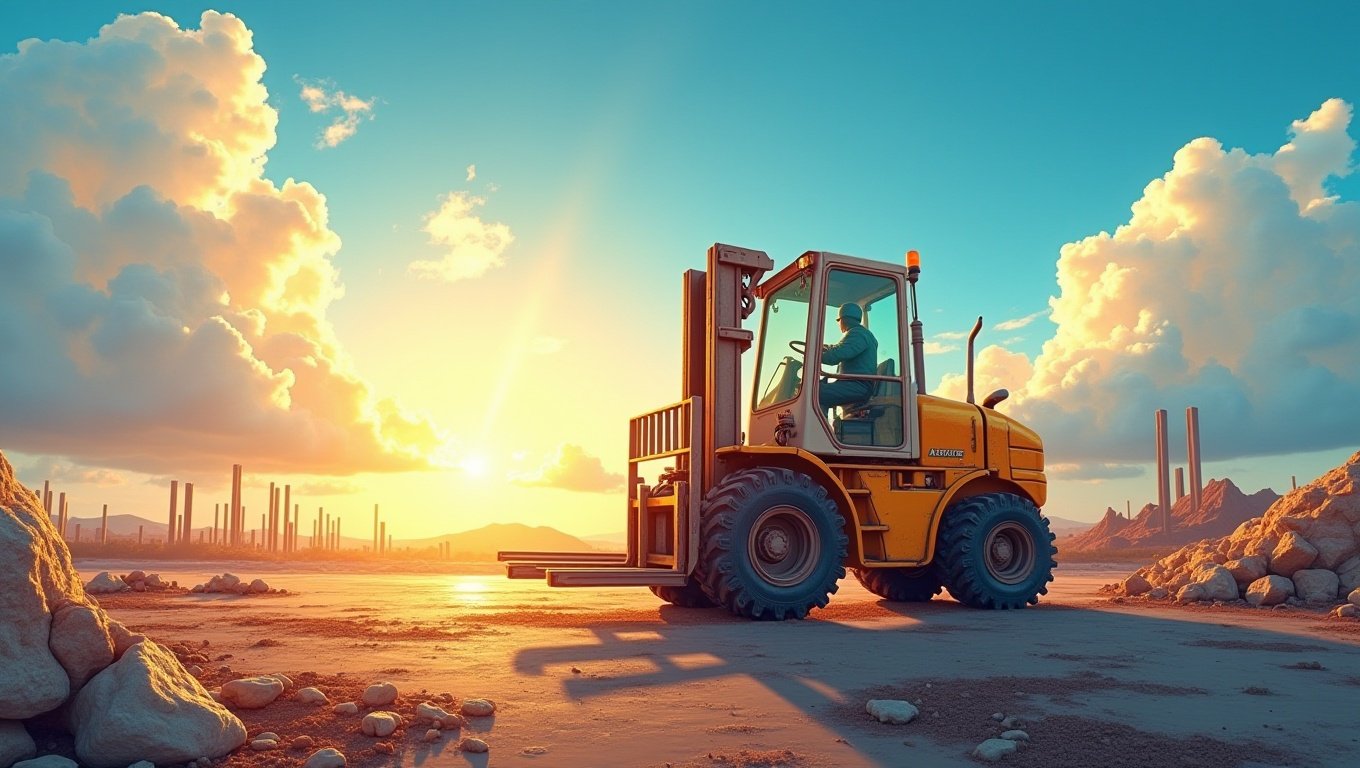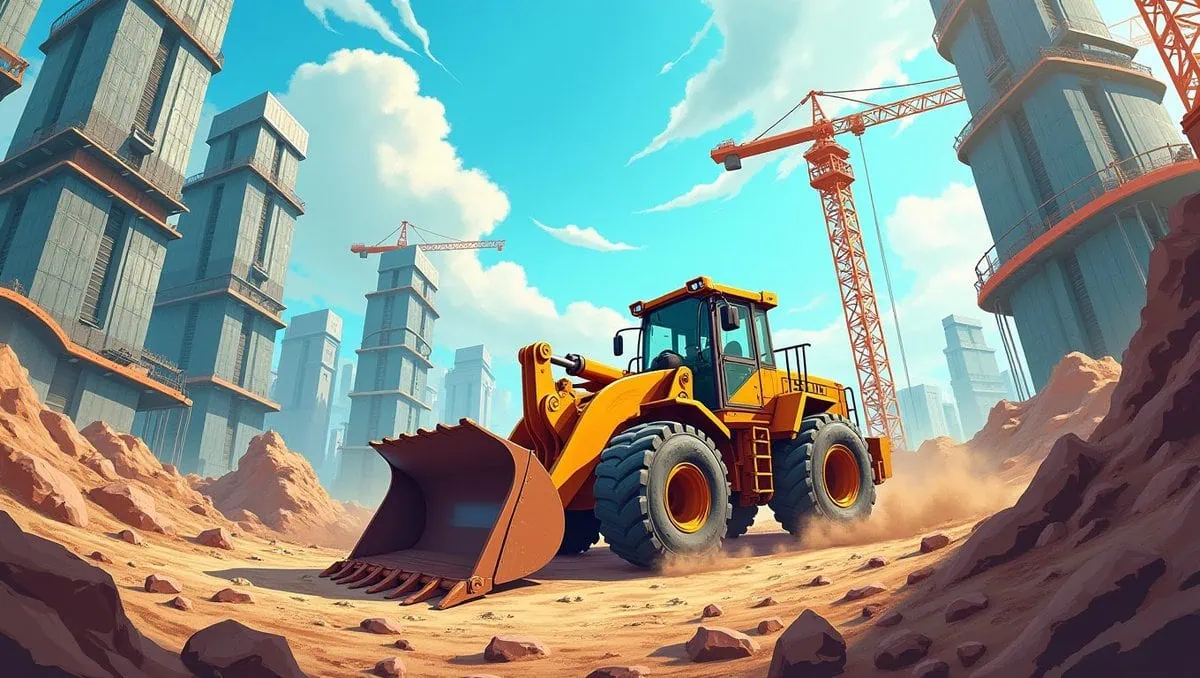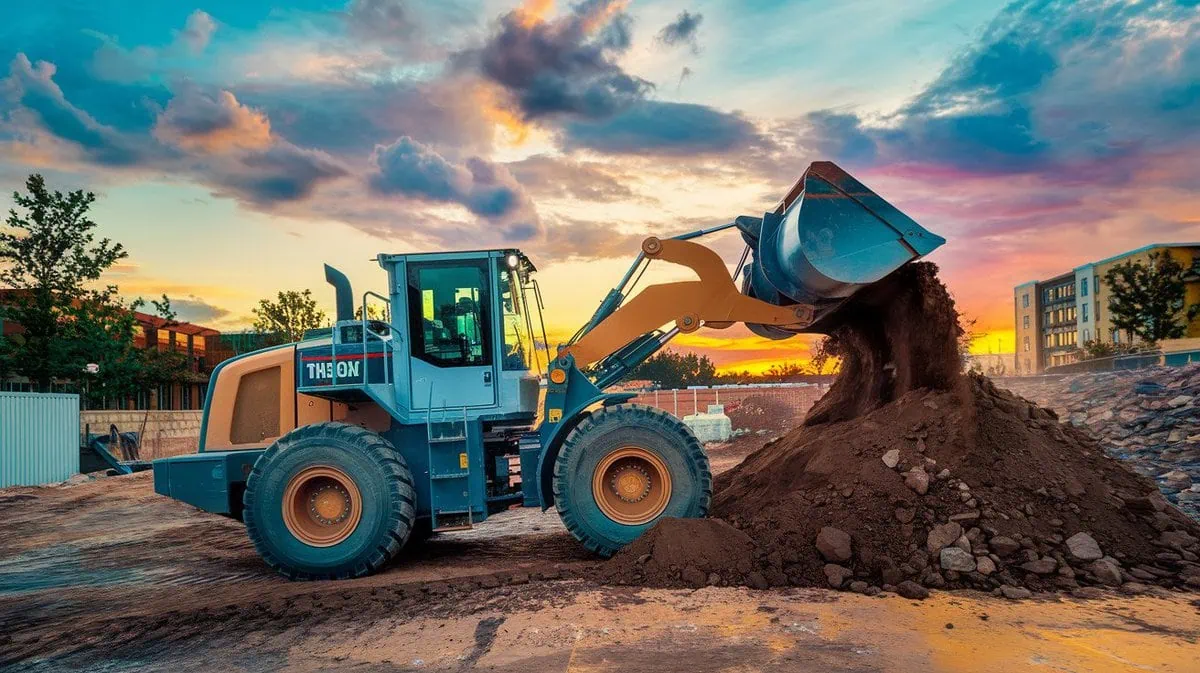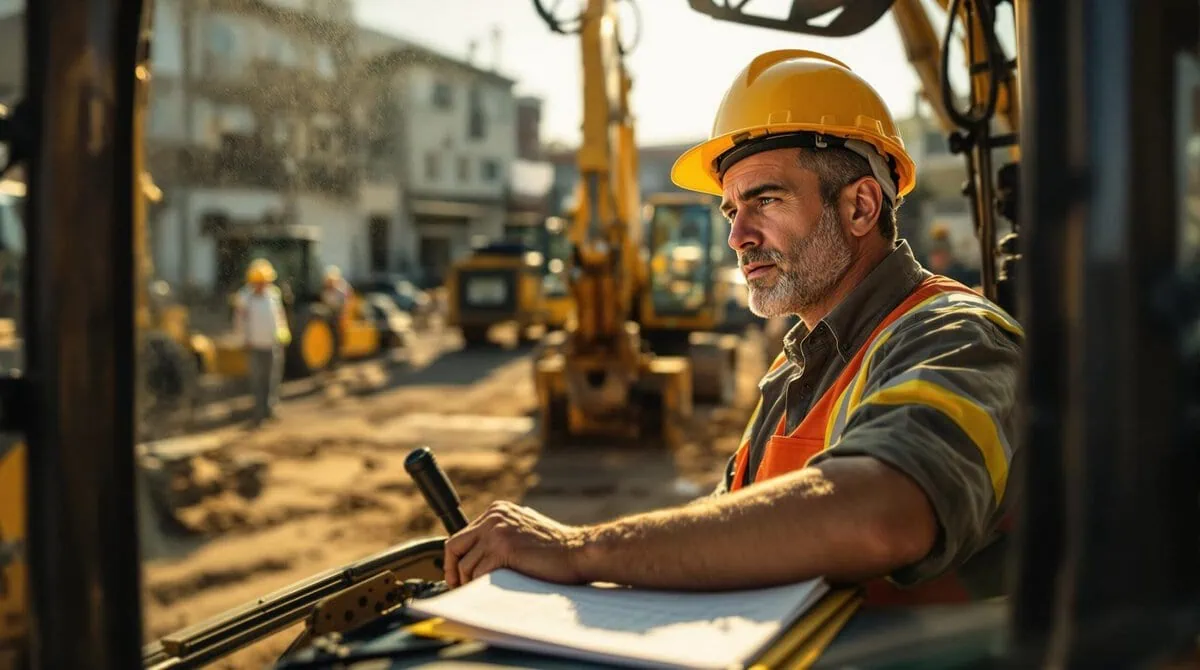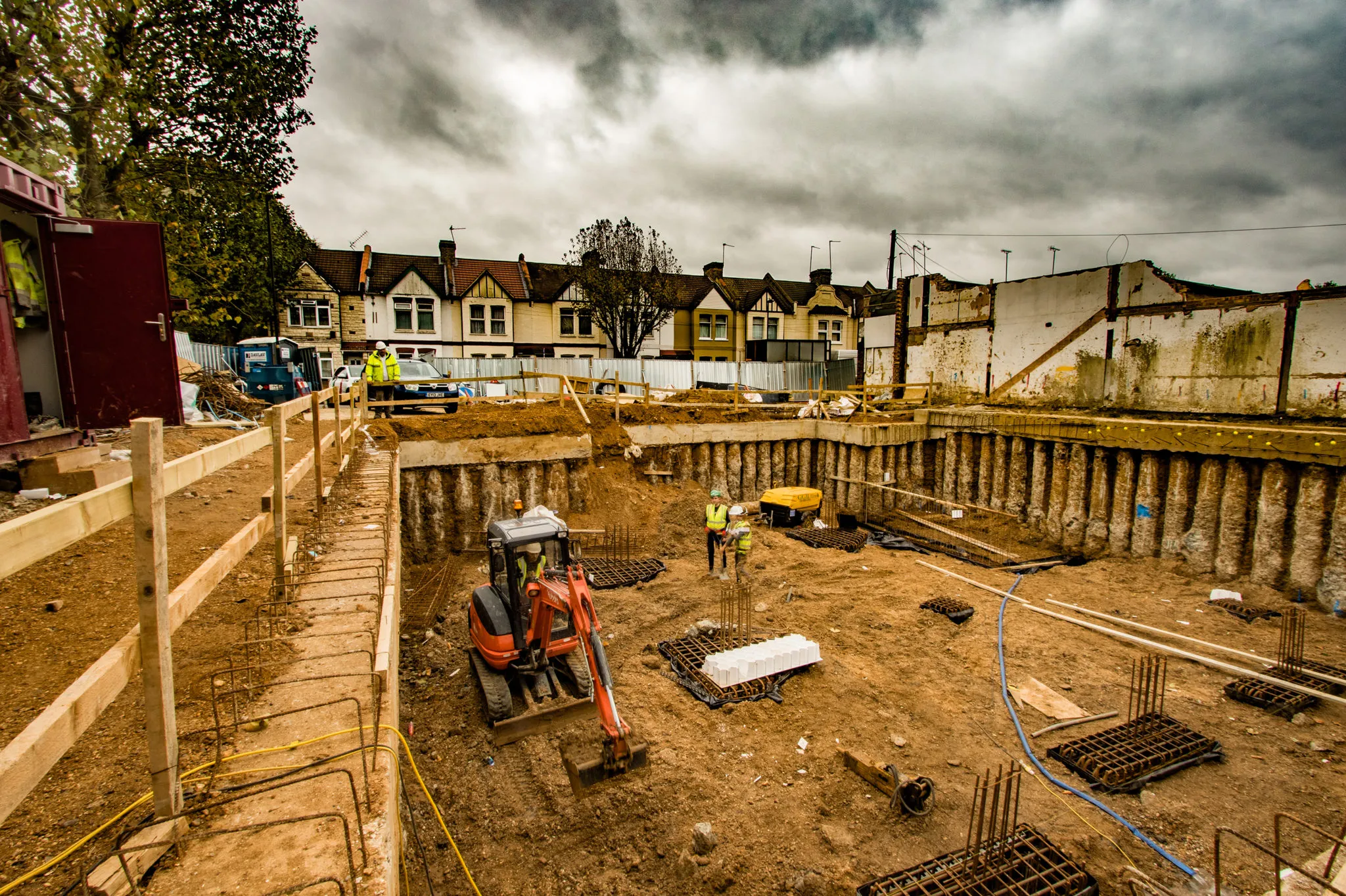When planning a construction or landscaping project, one of the most important choices you’ll make is selecting the right equipment. Whether you’re digging a hole, moving dirt or material, or making a trench, excavator vs loader are two of the most commonly used machines on site. However, their purposes and capabilities are very different. In this article, we’ll explore the main differences between excavators and loaders to help you choose the right machine for your next project.
What Are the Main Functions of an Excavator VS Loader?
The primary functions of an excavator and a loader set them apart. Each machine is designed to excel at specific tasks, and understanding these functions will help you choose the best equipment for your needs.
Excavator: Built for Digging and Precision Work
Excavators are specifically designed for digging, trenching, and heavy lifting. Their long boom arm and large bucket allow them to dig deep into the ground, making them ideal for tasks that require precision, such as excavation, grading, and demolition. Excavators are also versatile and can be equipped with different attachments, such as hydraulic hammers and augers, to perform a range of tasks beyond digging.
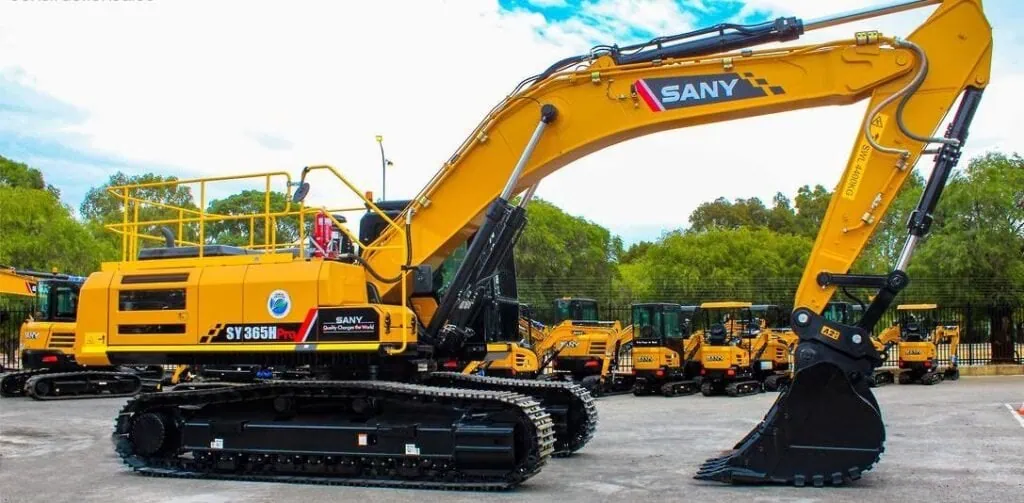
Loader: Designed for Moving and Loading Materials
Loaders, on the other hand, are built for material handling. They feature a large front bucket that is perfect for scooping up, moving, and transporting materials like dirt, gravel, sand, and debris across a construction site. Loaders are essential for tasks such as loading trucks, clearing debris, and moving bulk materials efficiently.
While both machines are essential for construction projects, excavators are more focused on digging and precision work, while loaders excel in material handling.

How Do Their Designs and Structures Differ?
Understanding the design and structure of both machines can help you make the right choice based on your project requirements.
Excavator Design: Flexibility and Precision
Excavators are distinguished by their rotating cab and long arm. This design allows the excavator to operate in tight spaces and rotate 360 degrees, making it versatile for a range of tasks, from digging to lifting materials. Their tracked design provides stability and helps them navigate rough or uneven terrain, making them ideal for construction sites with challenging ground conditions.
Loader Design: Speed and Efficiency
In contrast, loaders have a rigid frame with a large front bucket. While they lack the rotational flexibility of excavators, their design allows them to move forward quickly and scoop up large amounts of material in a single pass. Loaders are typically equipped with either wheels (wheel loaders) or tracks (tracked loaders), with wheel loaders being faster on hard, flat surfaces. Their speed and efficiency make them perfect for jobs that require quick material handling over flat terrain.
Which Machine Is More Versatile with Attachments?
The versatility of a machine can play a big role in its suitability for your project. Both excavator vs loader can accommodate attachments, but their options differ.

Excavator Attachments: A Range of Possibilities
Excavators are highly versatile when it comes to attachments. In addition to their digging bucket, you can add attachments like augers for drilling, hydraulic hammers for demolition, or grabs for handling materials. This flexibility allows excavators to handle a wide variety of tasks beyond excavation, making them ideal for complex projects that require multiple types of work.
Loader Attachments: Material Handling Focused
While loaders also have attachment options, they are generally more limited in scope. Loaders are typically fitted with buckets for material handling, although you can also add attachments like forks for lifting pallets or snowplows for clearing roads. Loaders are best suited for tasks that focus on moving materials quickly, rather than a broad range of functions.
How Do They Perform on Different Terrains?
The type of terrain you’ll be working on can influence the performance of your equipment. Excavators and loaders behave differently on various types of surfaces.
Excavators: Ideal for Uneven or Muddy Terrain
Due to their tracked design, excavators excel on uneven or muddy terrain. They provide better stability and traction, making them suitable for outdoor projects where the ground conditions might be unpredictable. If you’re working on a construction site with soft soil, steep slopes, or rough terrain, an excavator will offer better stability and control.
Loaders: Faster on Flat Surfaces
Loaders, particularly wheel loaders, perform best on flat, compact surfaces. They are faster and more maneuverable on hard, even ground, making them efficient for moving materials across paved roads or construction sites. If your job site is relatively smooth and level, a loader will help you move materials with greater speed.
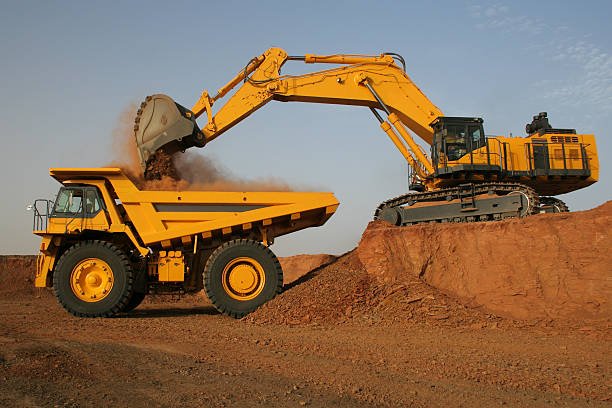
Which One Should You Choose for Your Project Needs?
The decision between an excavator vs loader depends largely on the specific tasks you need to complete. Here’s a guide to help you decide which machine is right for your project.
Choose an Экскаватор If:
- You need to dig or trench: Excavators are ideal for tasks that require deep digging, such as trenching for pipes or foundations.
- You’re working on rough or uneven terrain: Excavators provide better stability on soft or uneven ground, making them perfect for outdoor projects.
- You need versatility: Excavators can be equipped with a variety of attachments for demolition, drilling, and lifting.
Choose a Loader If:
- Your project involves moving materials: Loaders excel at moving large quantities of material across a construction site quickly and efficiently.
- The terrain is flat and accessible: Loaders are faster and more efficient on flat, compact surfaces like roads or smooth construction sites.
- You need to load trucks or clear debris: Loaders are designed to scoop up and transport materials, making them ideal for loading trucks or clearing construction debris.
Заключение
Excavators and loaders are both critical pieces of equipment for construction projects, but their primary uses and designs are considerably different. Excavators are designed for digging, trenching, and applications requiring versatility. Conversely, loaders shine in material handling and moving material around job sites quickly.
When choosing between an excavator vs loader, consider your project’s specific needs, the type of terrain, and the tasks you’ll be performing. If you’re unsure which machine is best suited for your project, contact us for expert advice on choosing the right equipment!
For more insights and in-depth comparisons, check out our YouTube channel for helpful videos and tutorials: [YouTube Link Here].

